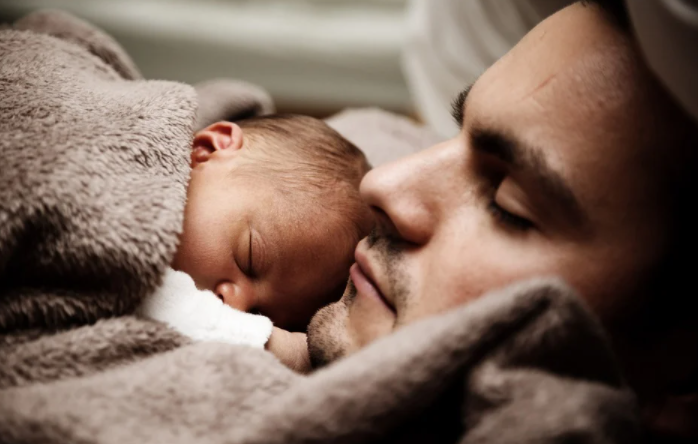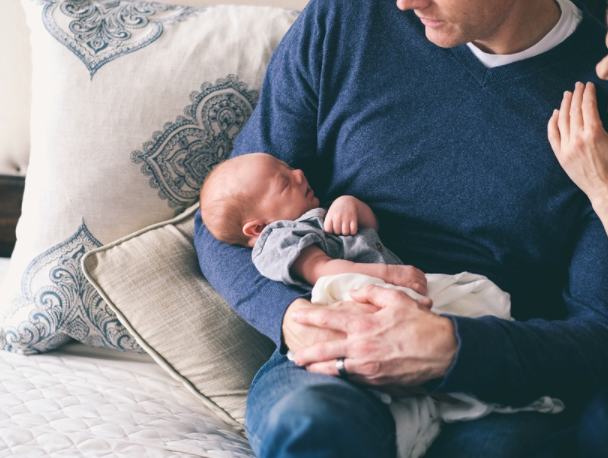It is never easy to talk about cosleeping with your child with friends, loved ones, or health care providers. This habit has been stigmatized for years, and many negative myths about bed-sharing are not supported by the available science or research. The best thing you can do to combat these assumptions is to educate others and yourself about bassinet safety, sleep safety guidelines, and the truths of cosleeping. Doing your research to find scientifically-backed advice is the best way to make an informed decision for you and your loved ones. To put your mind at ease, here are some of the most common myths that have been cleared and debunked.

Cosleeping Is to Share the Same Bed With Your Baby
When it comes to sleeping together, most people mean taking their baby or toddler to bed with them, but that’s not necessarily true! You can sleep in every night, or just on nights when your child is particularly restless. Sharing a bed is one way of cosleeping that is especially appropriate for nursing mothers. If you are a parent or caregiver of a bed-sharing child, it is important to know the safety guidelines. These signs include touch, sounds, movement, smells (e.g., of breast milk), visual cues, and breath sounds, along with the rush of the mother’s breath hitting and exciting the baby’s cheek cells. Research suggests that something as simple as carbon dioxide gas exhaled by the mother can signal the baby’s entire body to exhale and begin a new breathing cycle.
Cosleeping Results in a More Dependent Child
 They believe that if they don’t teach their children to sleep alone at night, they may end up with poor social skills or sleep habits as adults. Some believe that if children become accustomed to having their parents present during sleep, it may limit their freedom. This is not true. The fact is that a child’s ability and willingness to be self-sufficient in his or her life later has nothing to do with how much time they sleep with their parents. A psychologist also found out that children who sleep with their parents at their earlier stage tend to make friends easily, be more creative, and control their mood well in their life later.
They believe that if they don’t teach their children to sleep alone at night, they may end up with poor social skills or sleep habits as adults. Some believe that if children become accustomed to having their parents present during sleep, it may limit their freedom. This is not true. The fact is that a child’s ability and willingness to be self-sufficient in his or her life later has nothing to do with how much time they sleep with their parents. A psychologist also found out that children who sleep with their parents at their earlier stage tend to make friends easily, be more creative, and control their mood well in their life later.
Cosleeping With Your Baby Destroys the Relationship With Your Partner
New parents’ relationships indeed change as they care for the baby, but that doesn’t mean that sleeping with the baby next to you has negative effects. With the baby in bed or bed together, you can still laugh, talk, touch, and enjoy your relationship with your spouse. These types of issues depend on who is sleeping together and how each spouse feels about their arrangement. The most important thing is that you and your partner try to share the same goals for raising your children and working through experiences and challenges together. The best approach to avoid tension in the relationship is for both spouses to review and discuss sleeping arrangements with each other, and also to be fair about the type of cosleeping each is comfortable with. And of course, both partners must commit to following recommended safety measures.
Cosleeping Results in Bad Habits
Cosleeping doesn’t create bad habits, considering that one house’s bad habit can be the other’s greatest joy. As a parent of a toddler and a bed-sharing child, I considered it a privilege and appreciated the time I spent with him. If you sleep through the night regularly, you will have great memories of your adventure, and your child may have extra strength. However, you may also experience a less shared dream. In my opinion, and that of many lucky families who sleep together, the benefits outweigh the costs.

